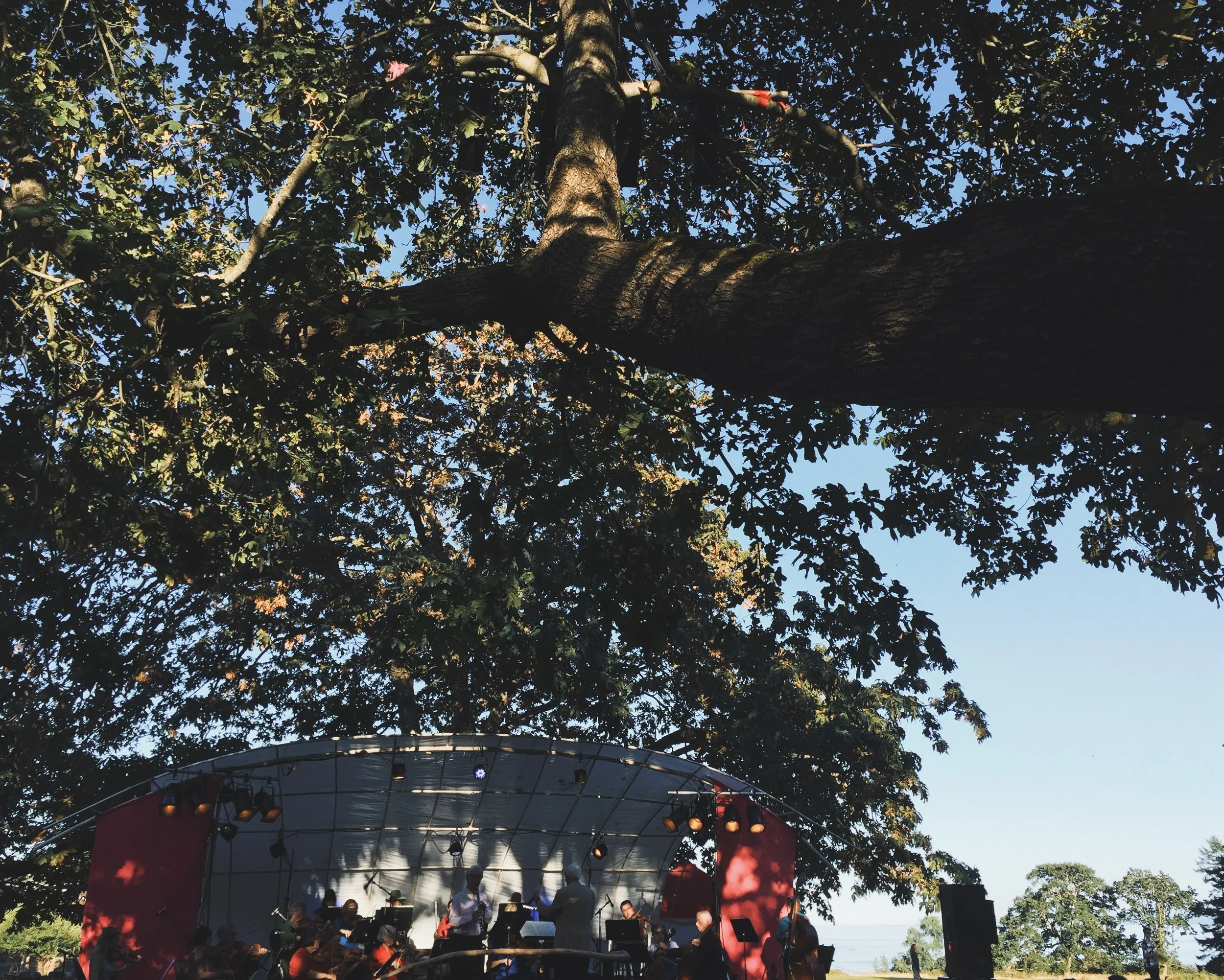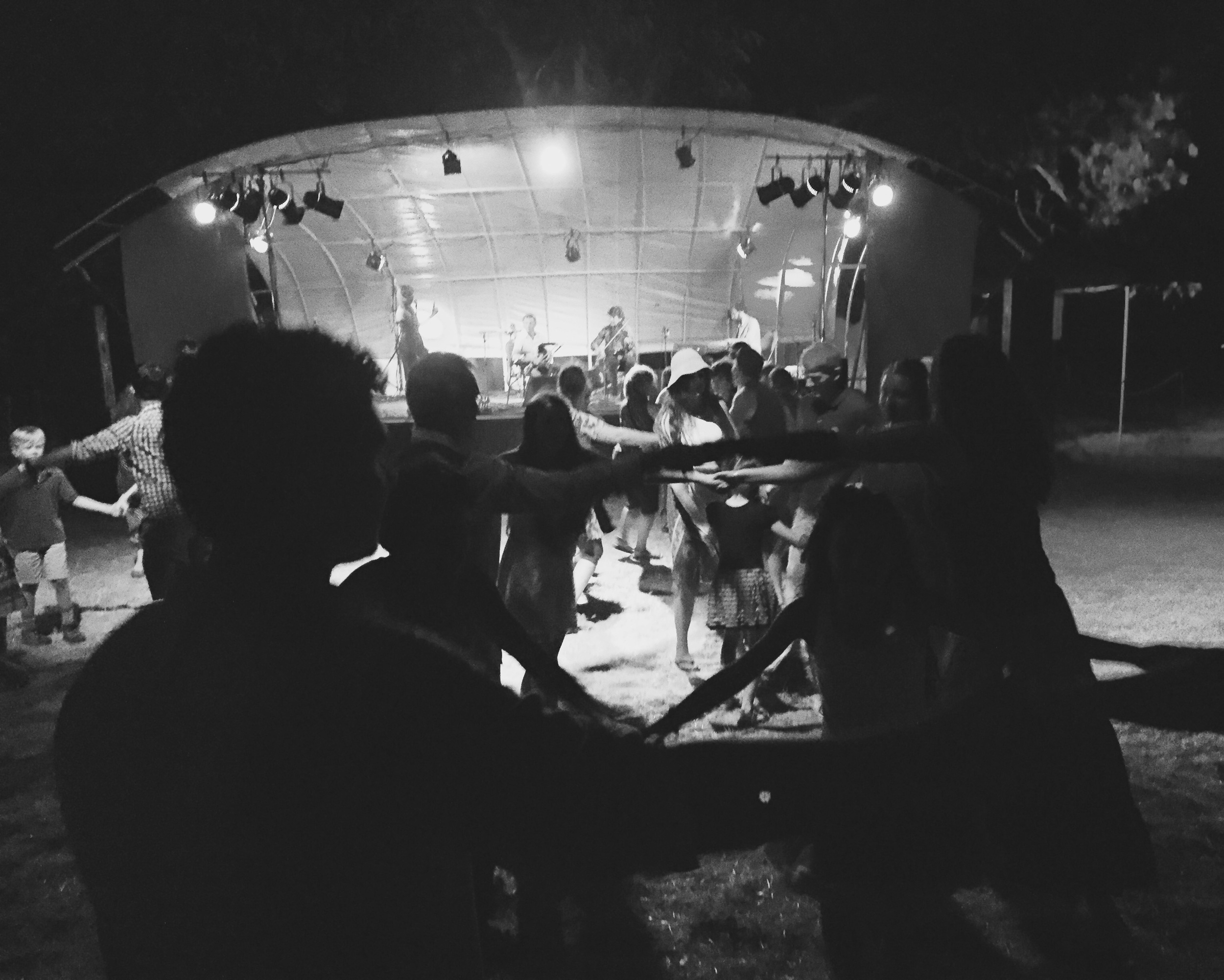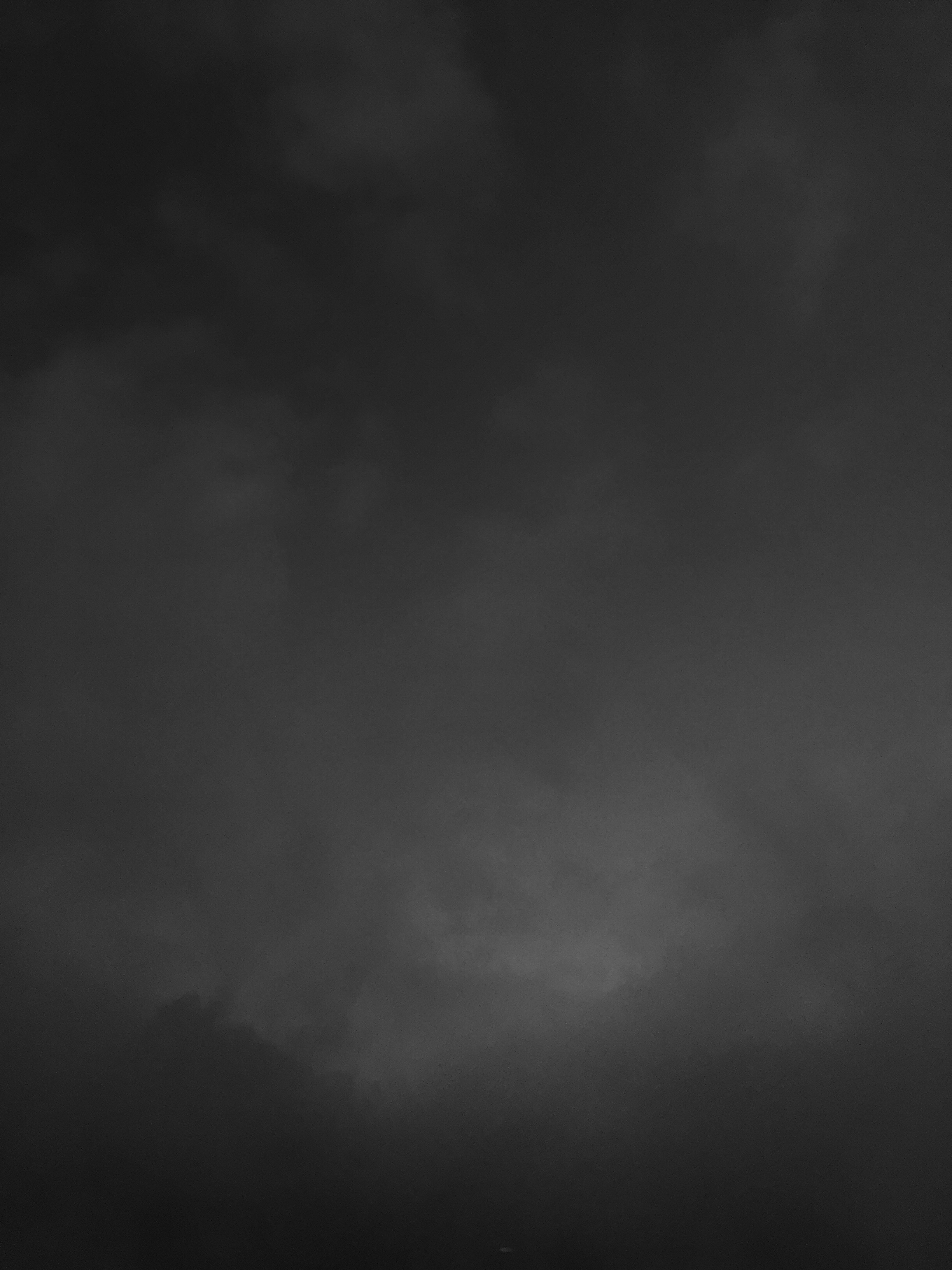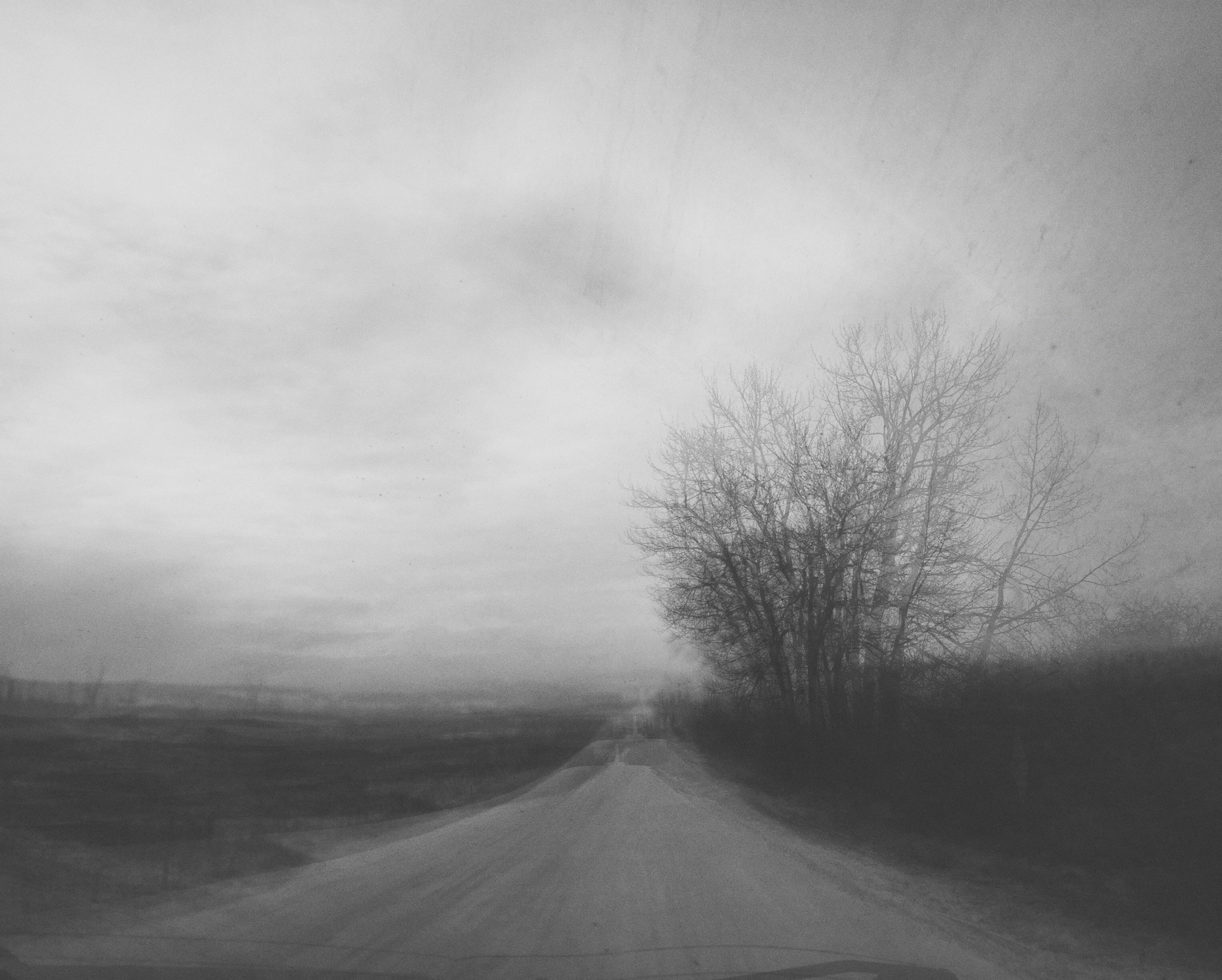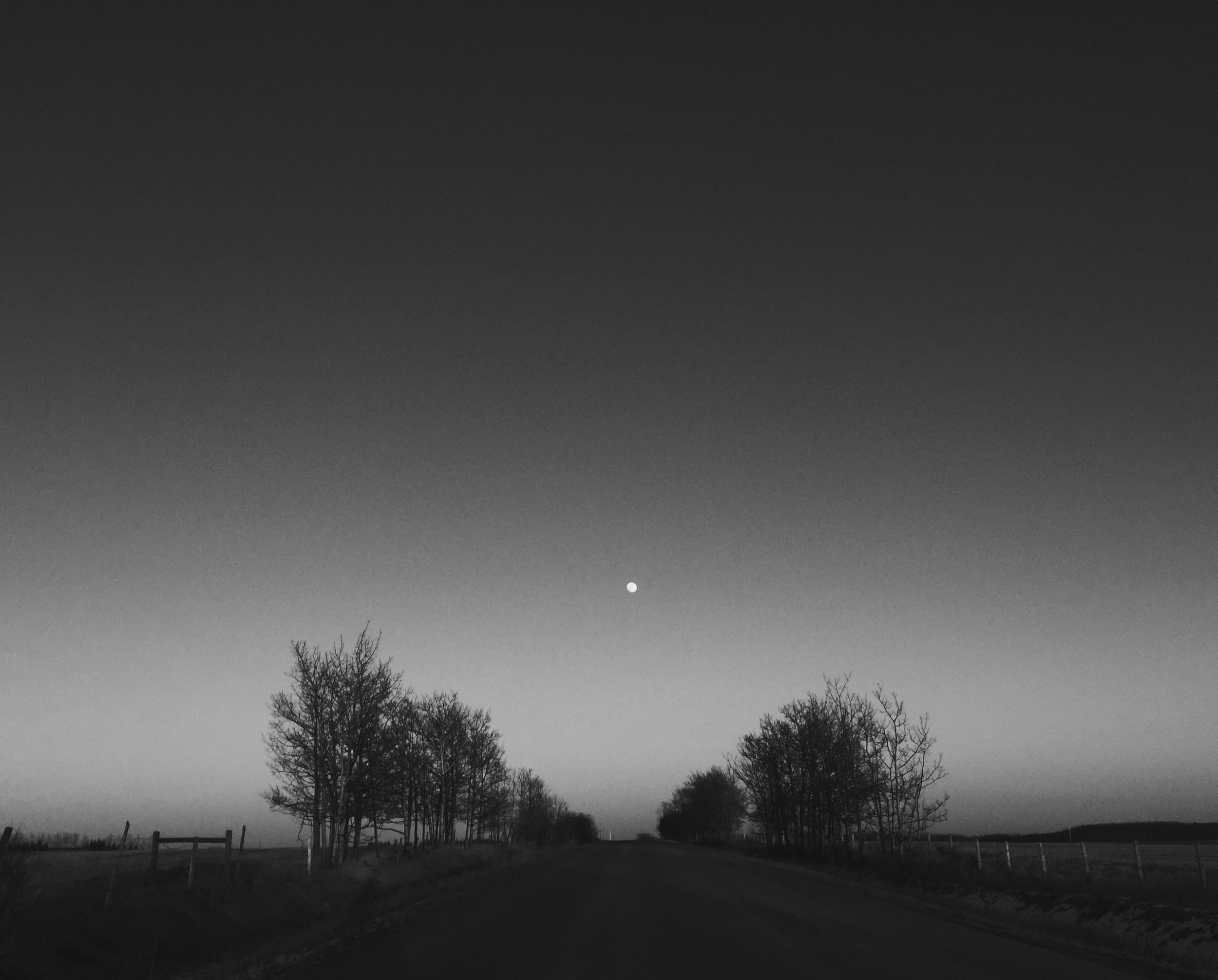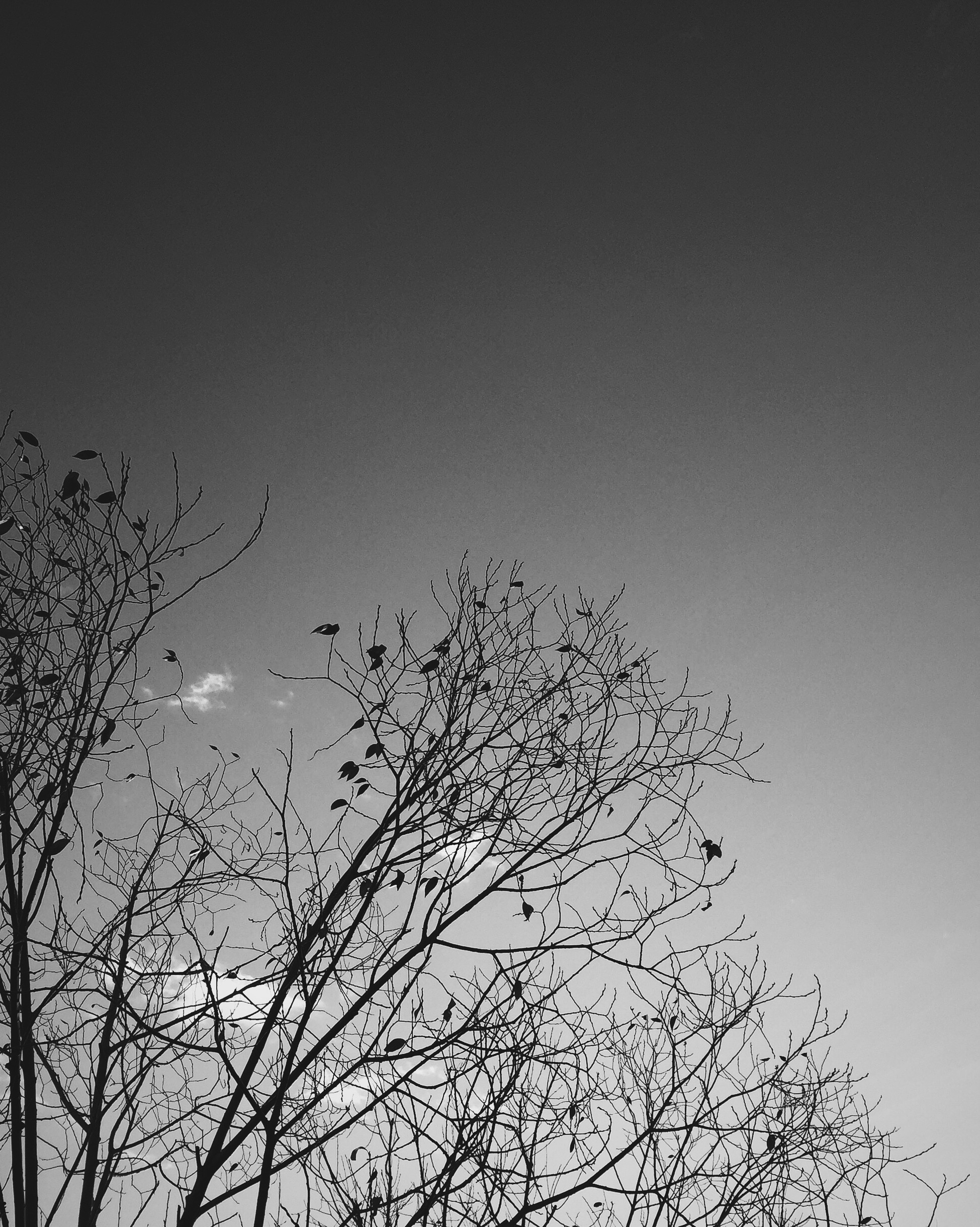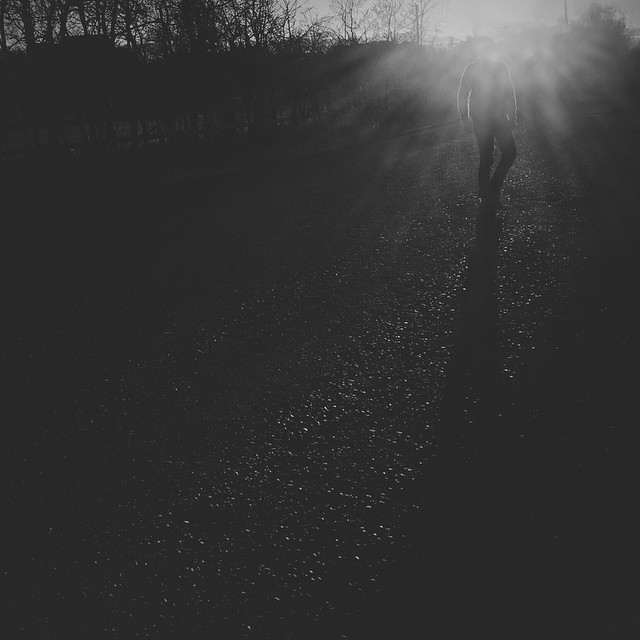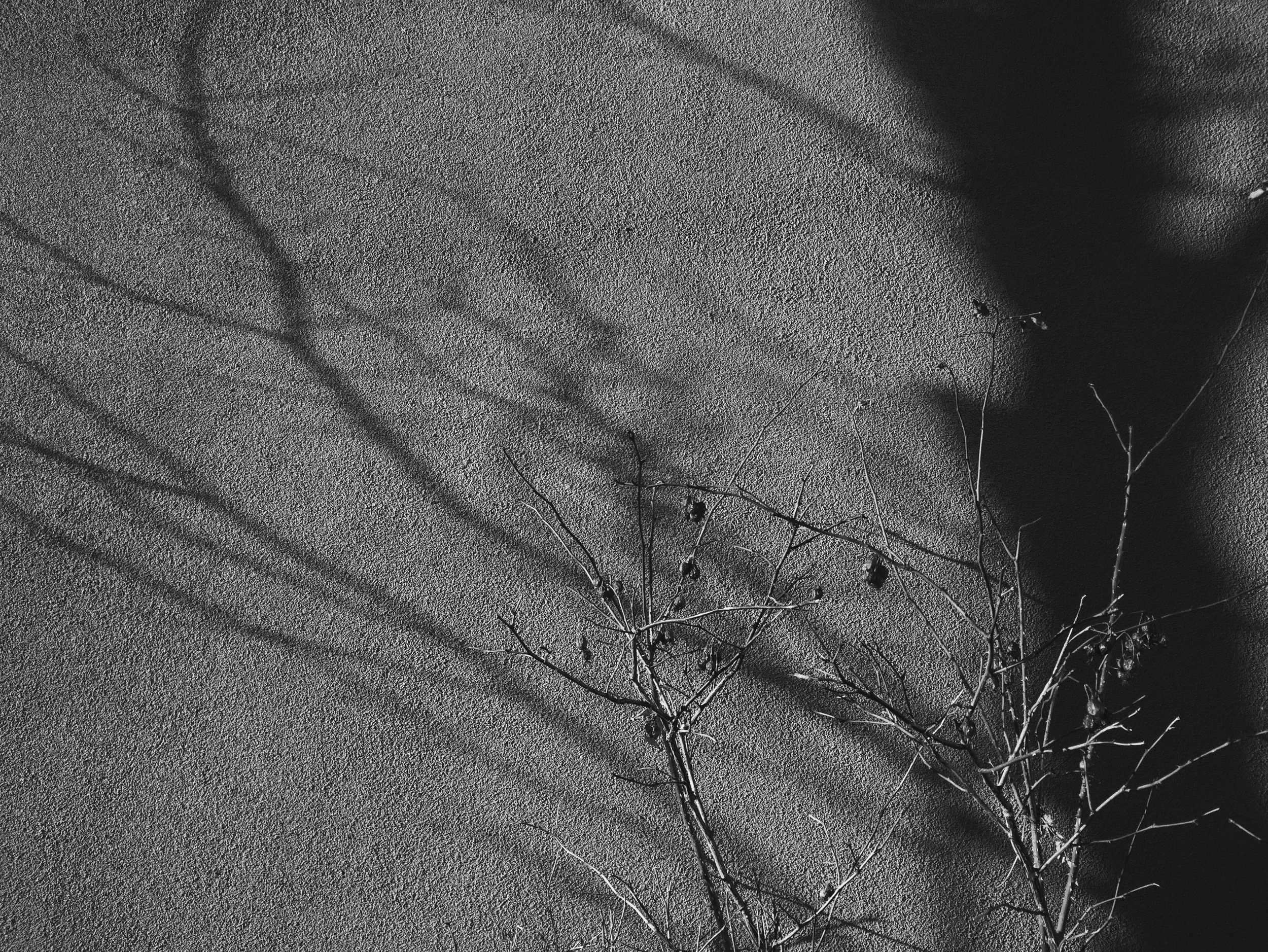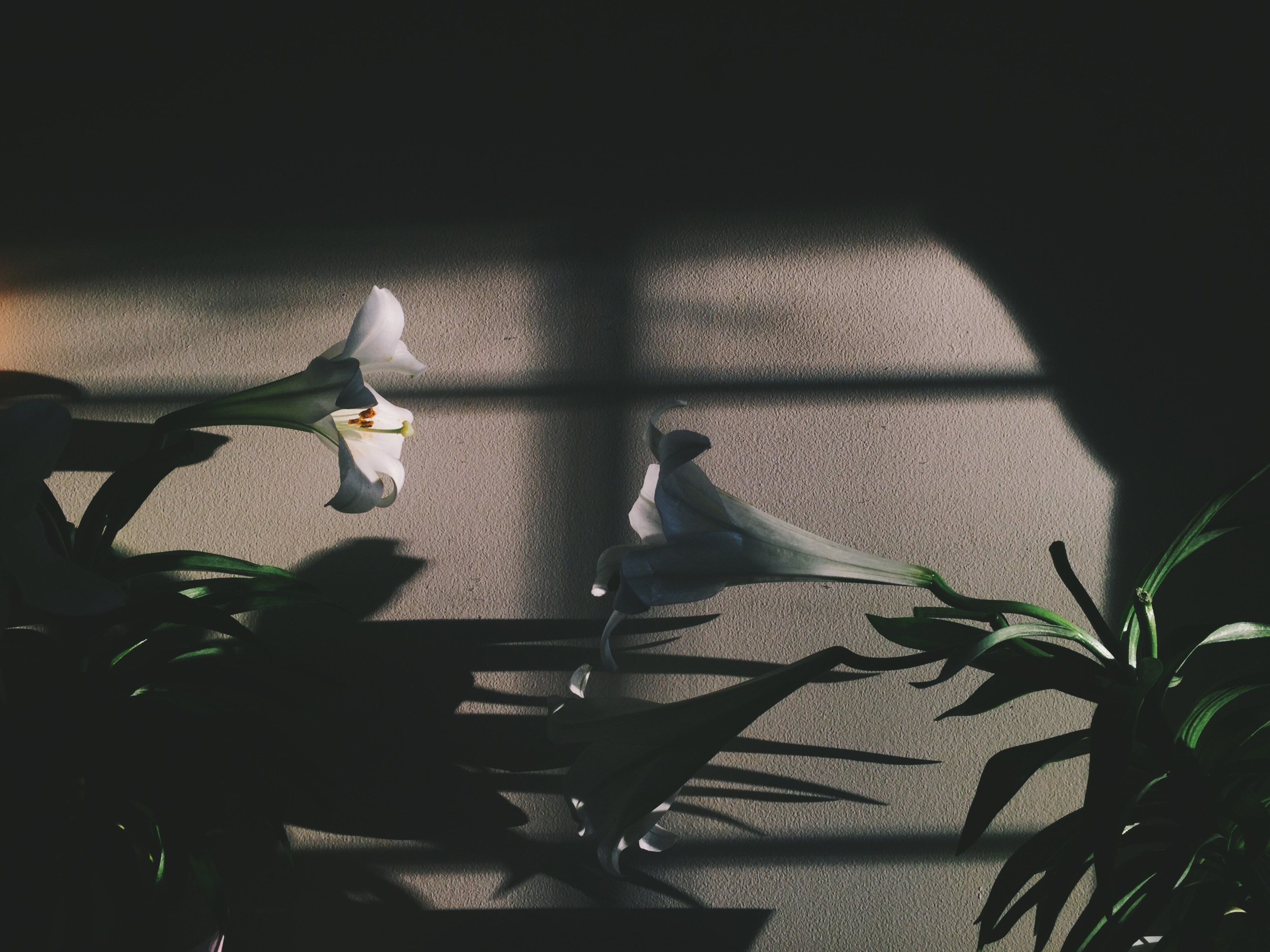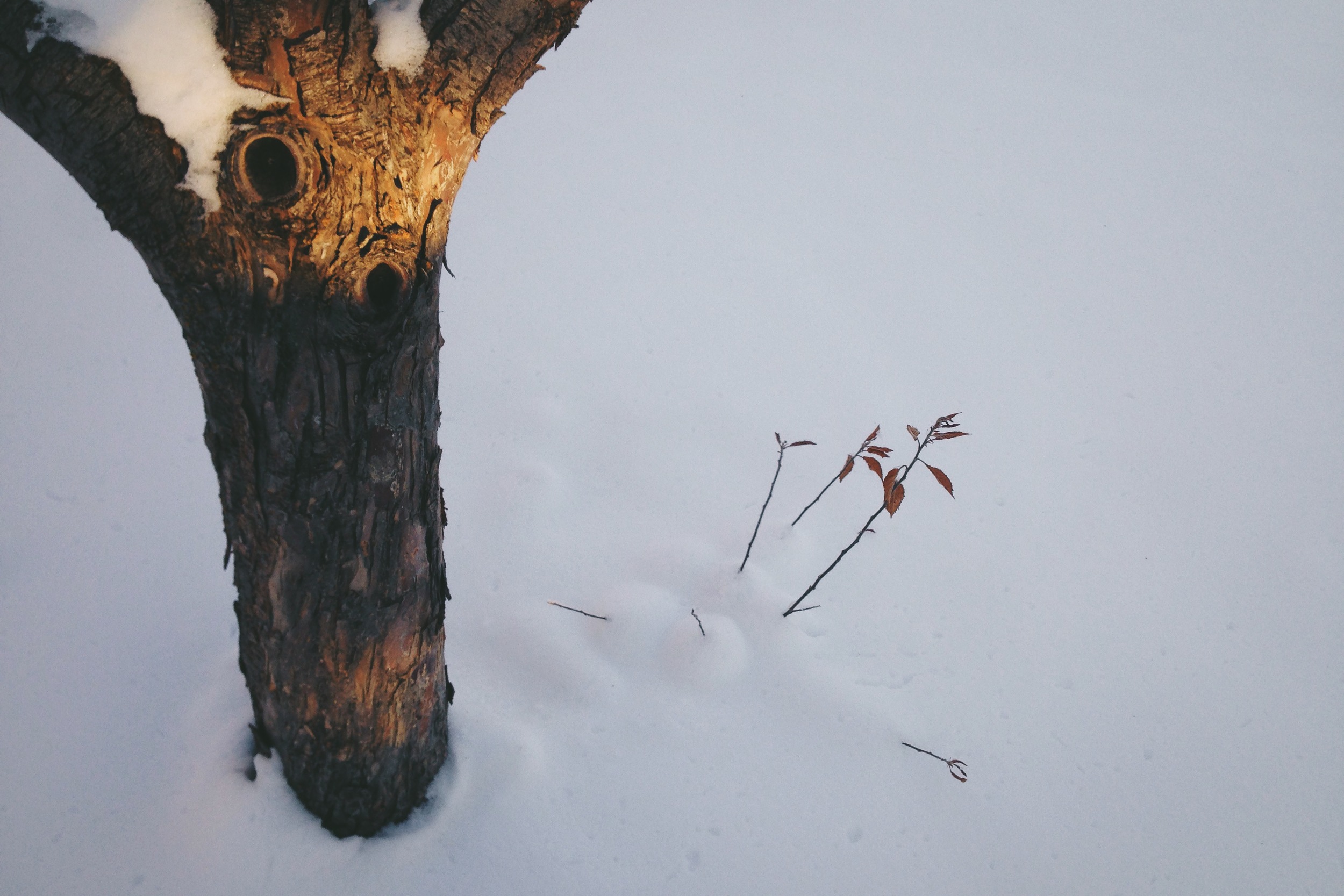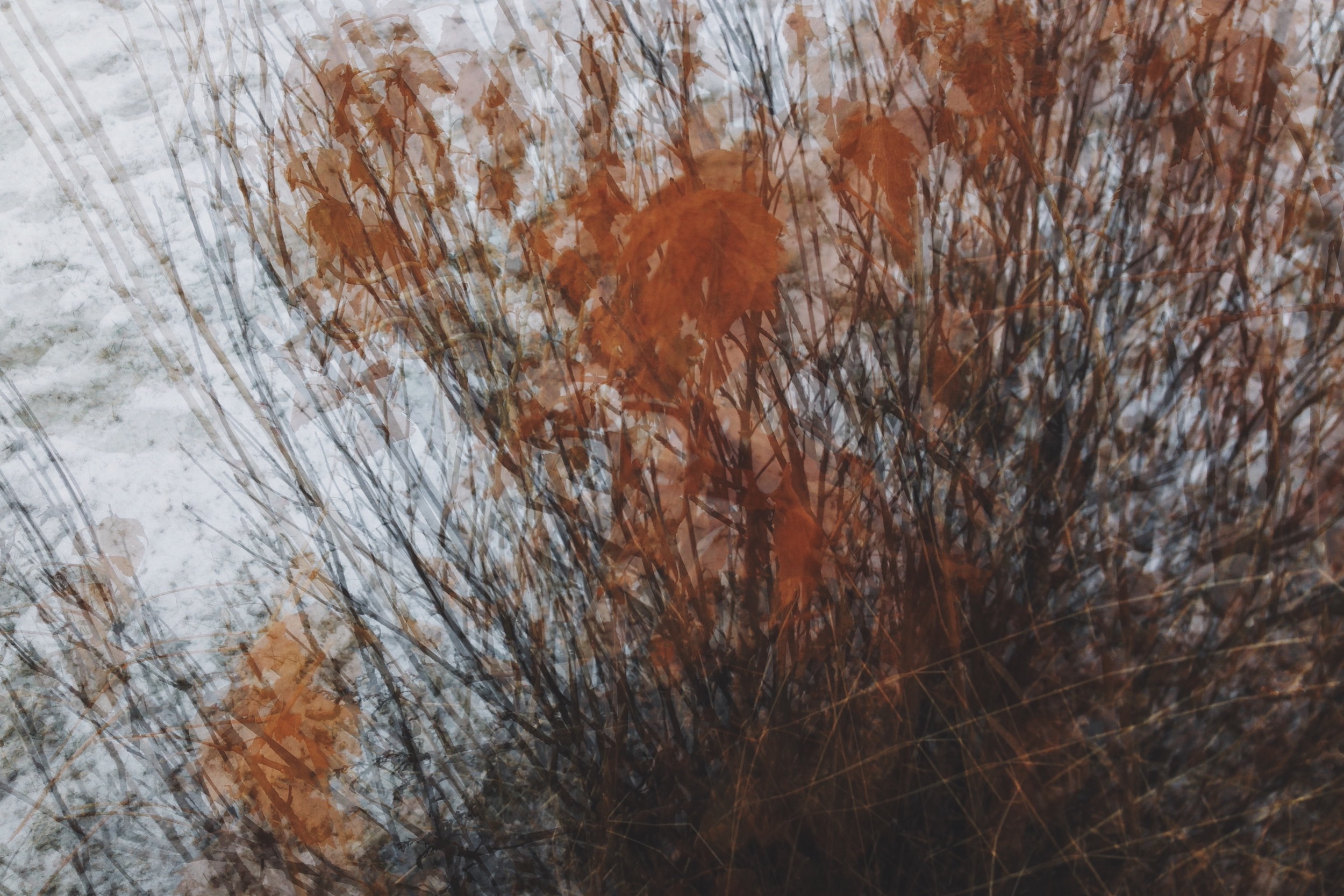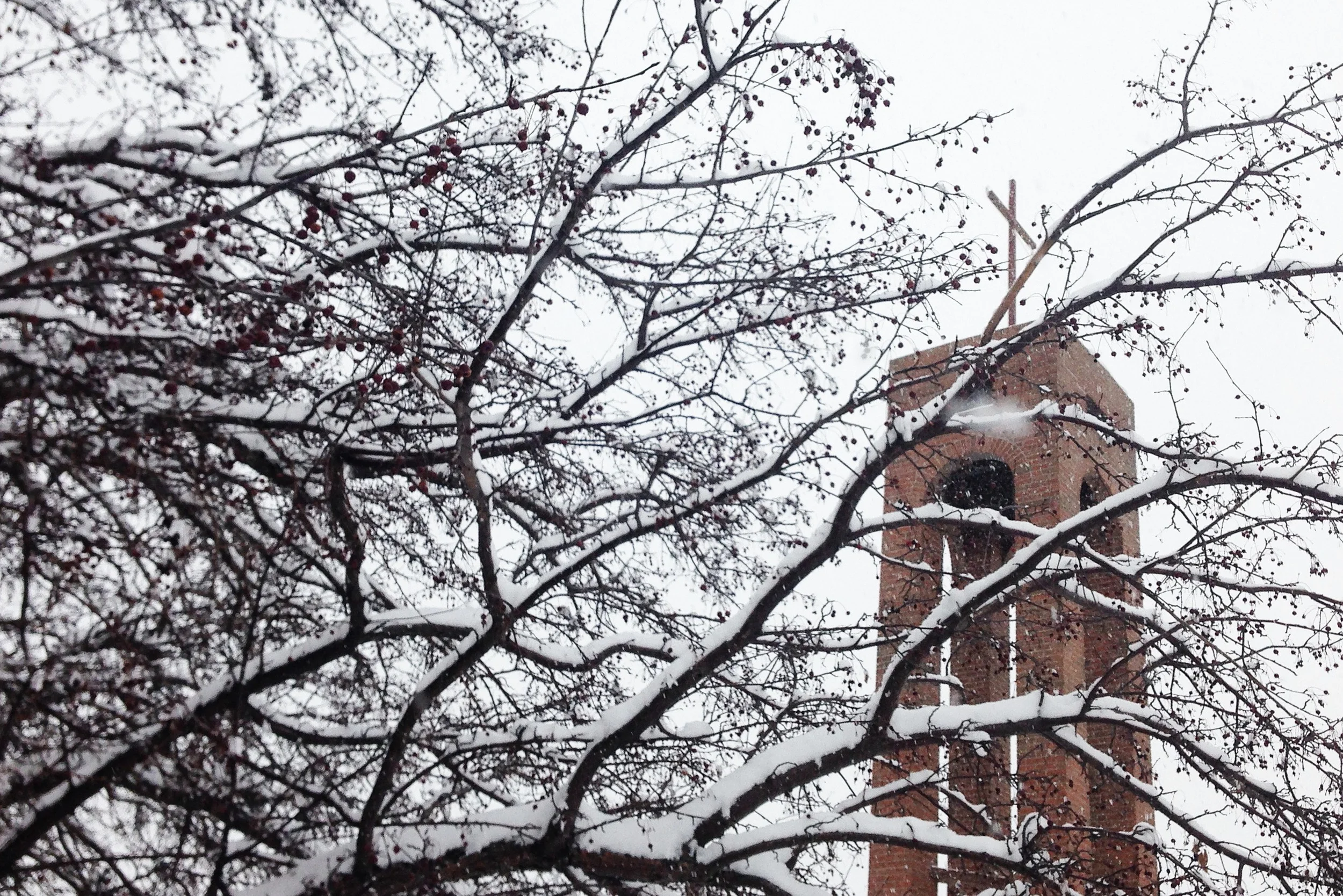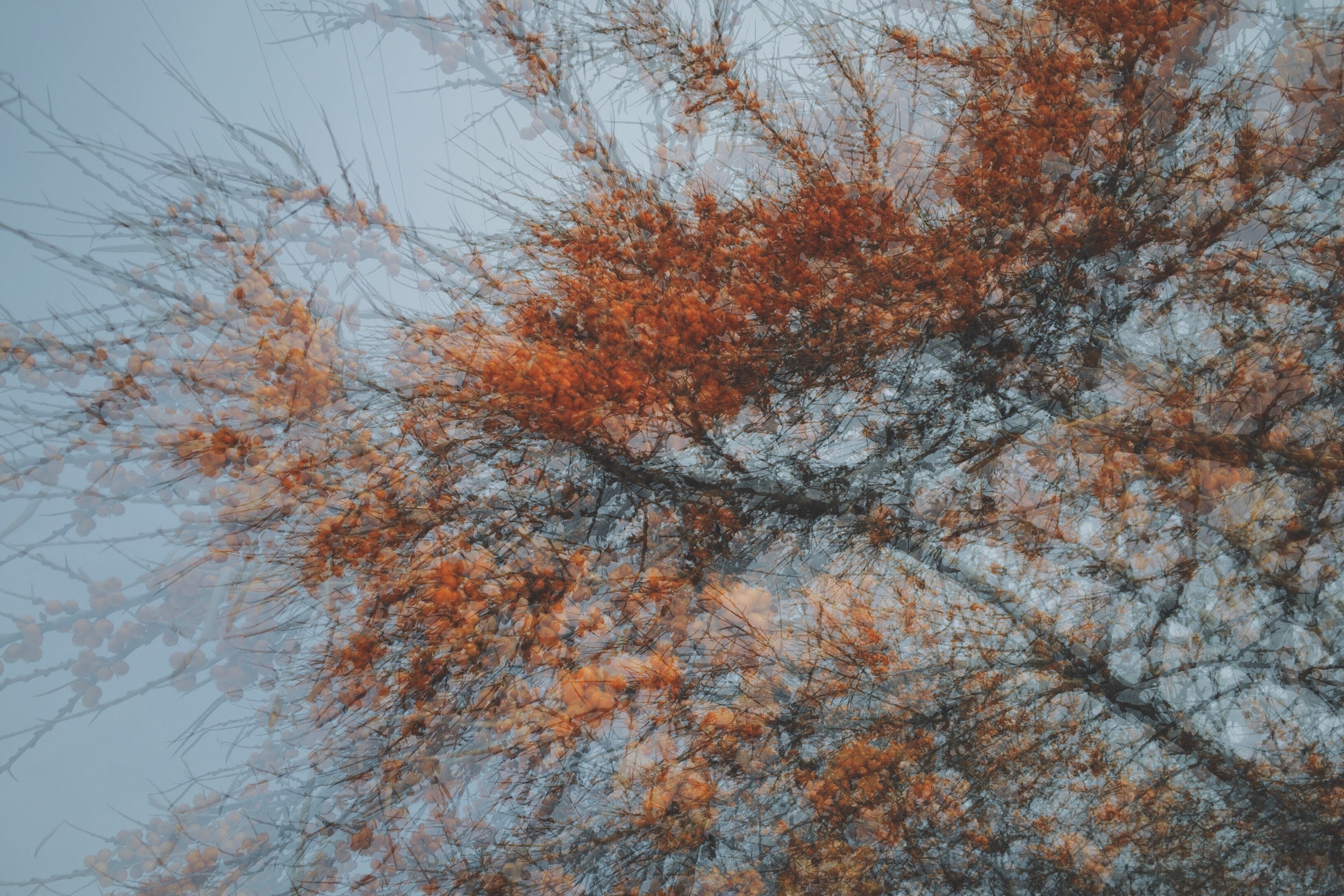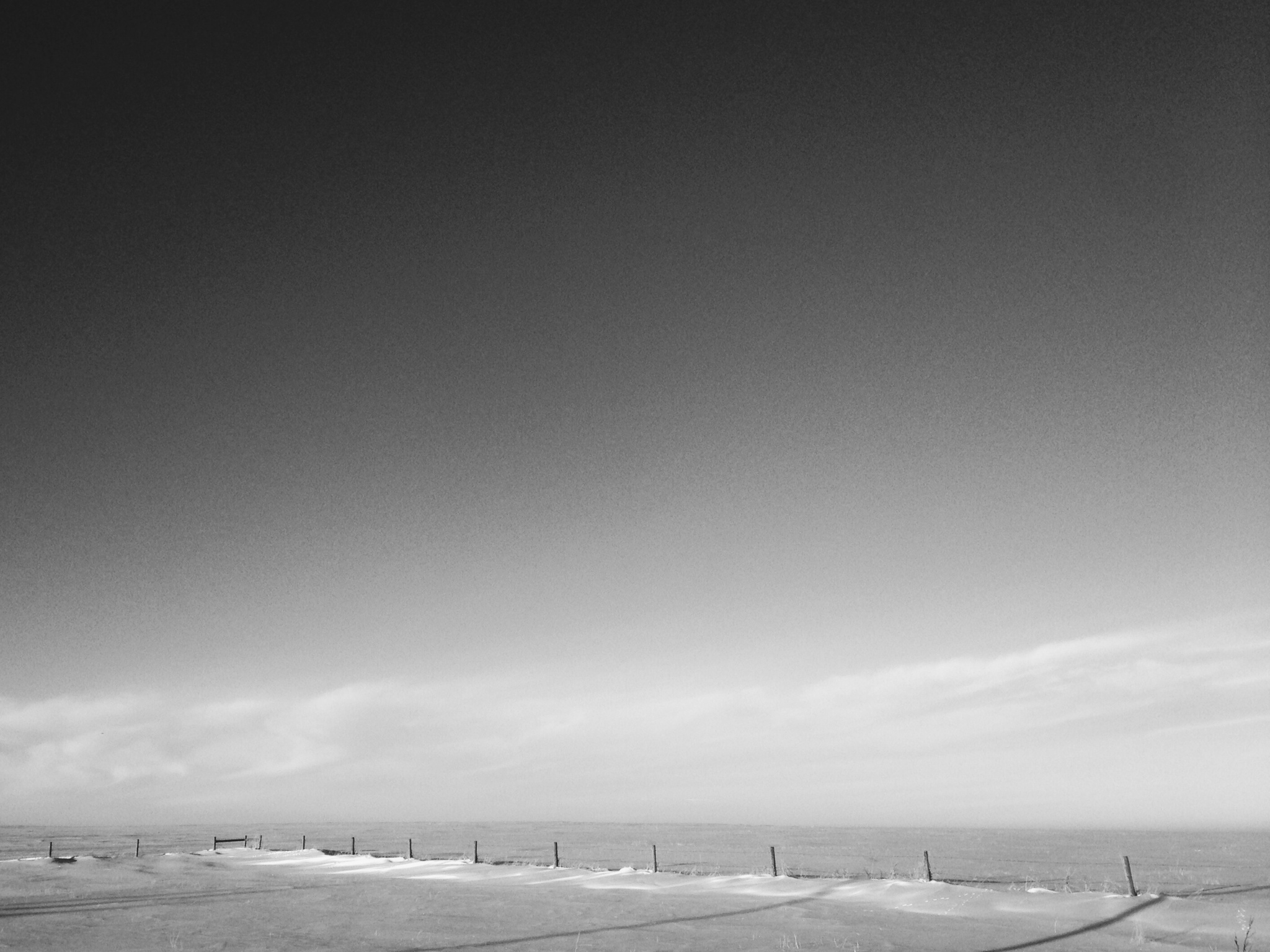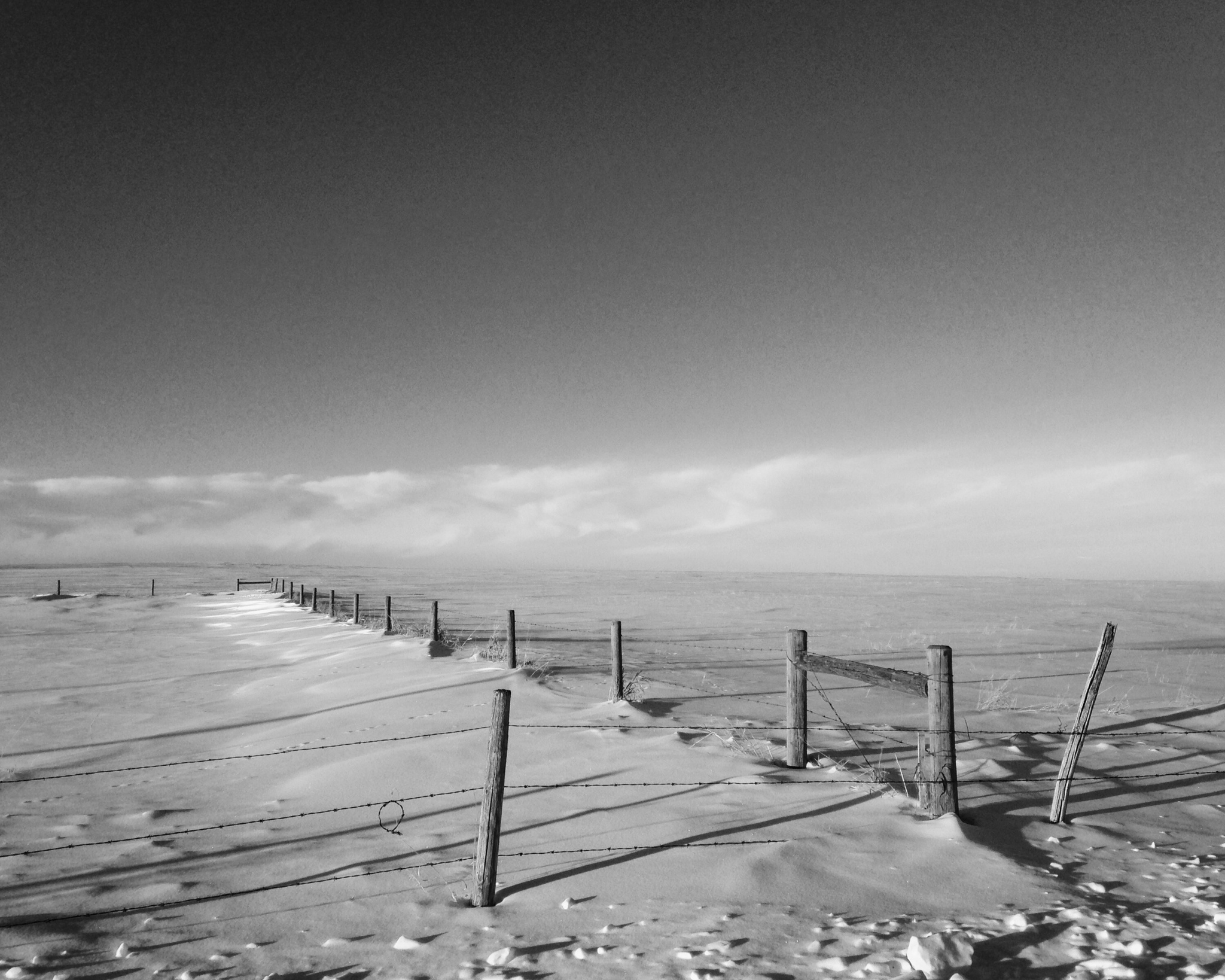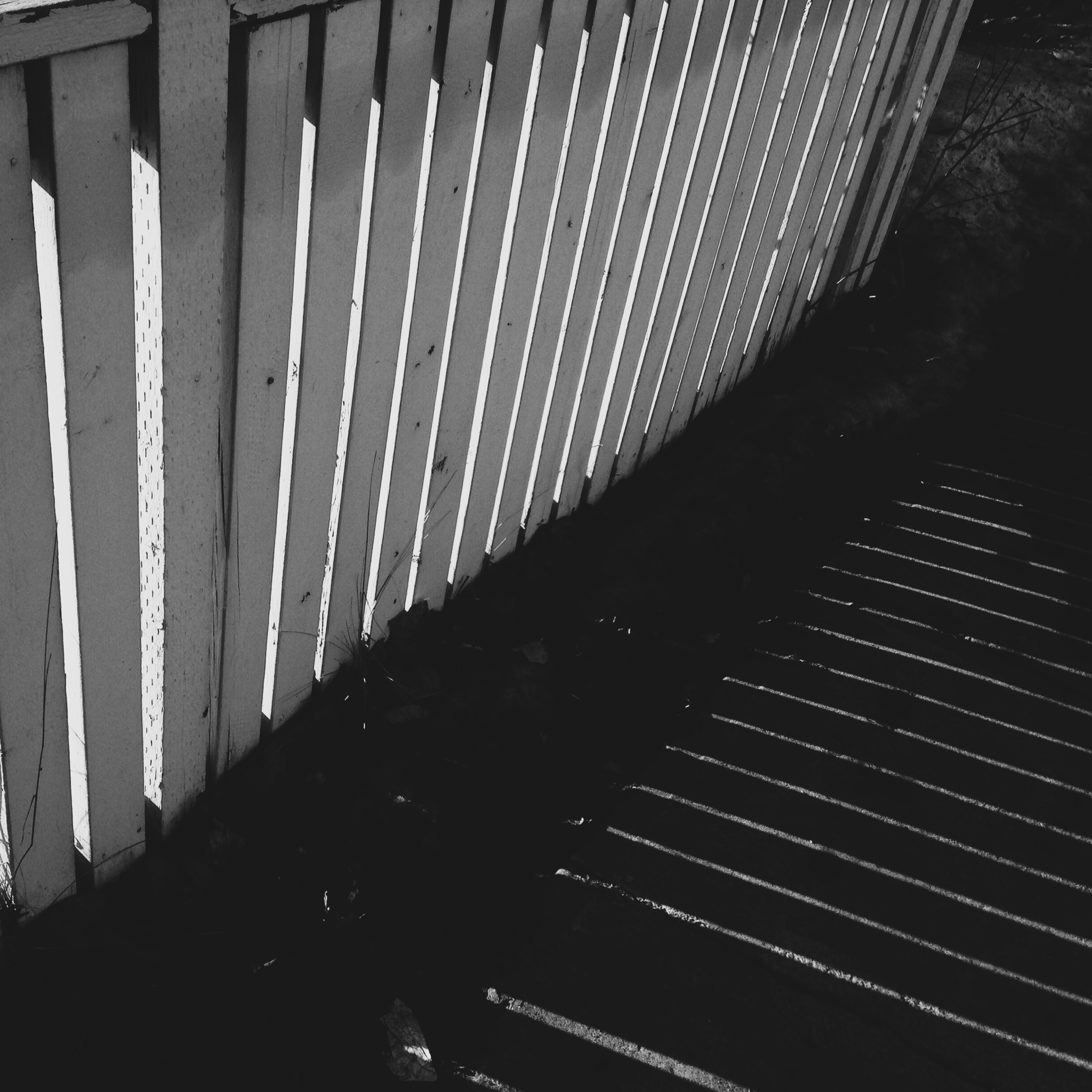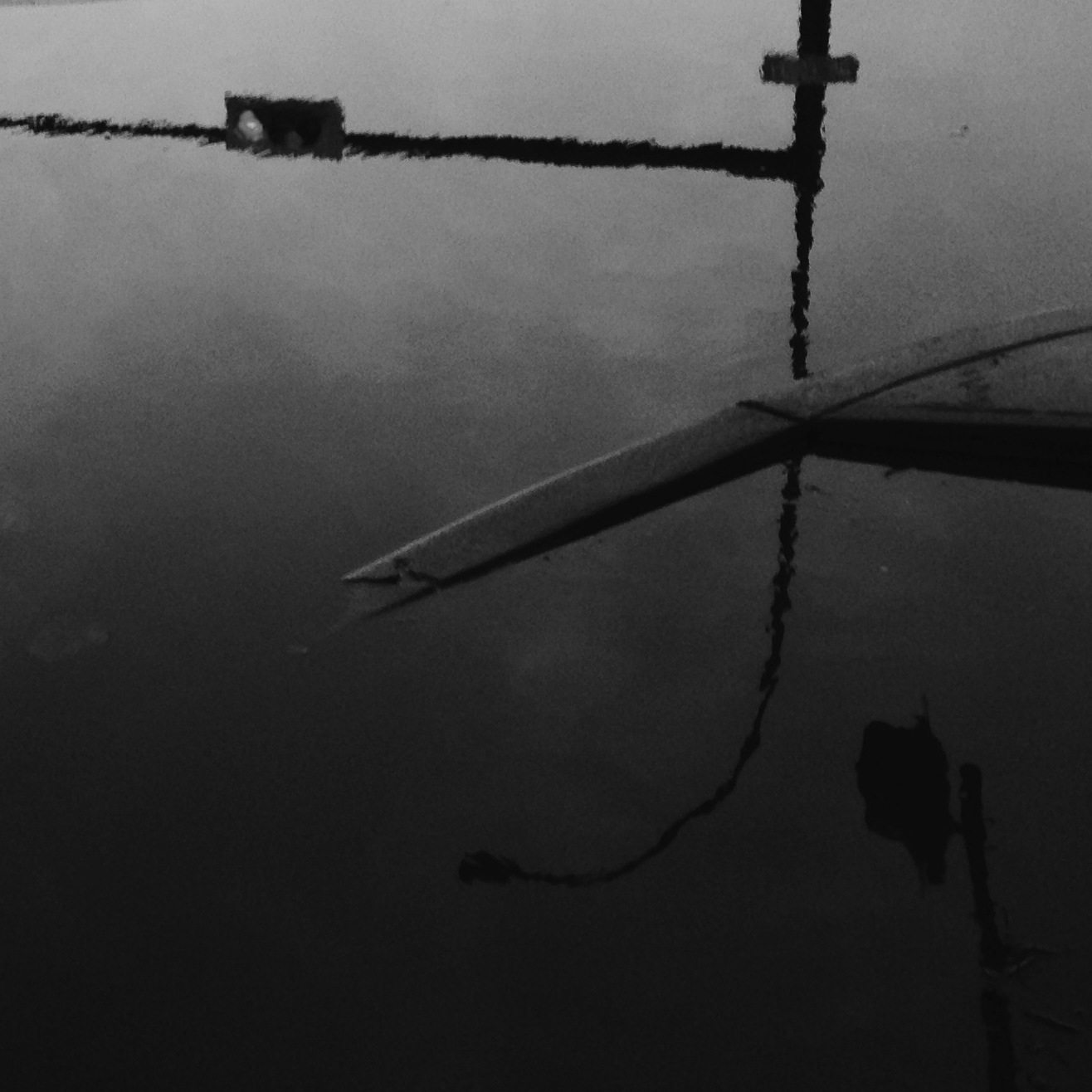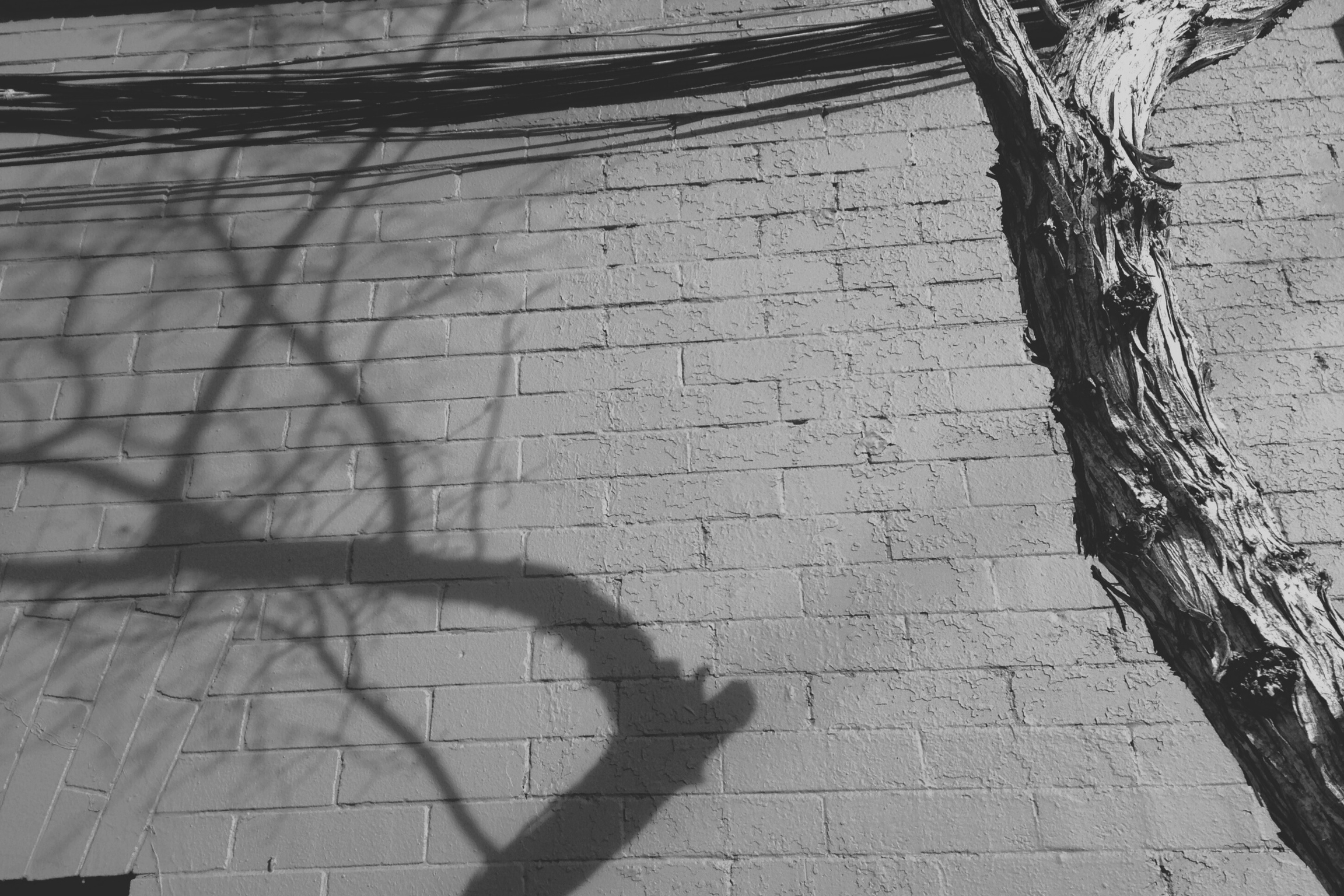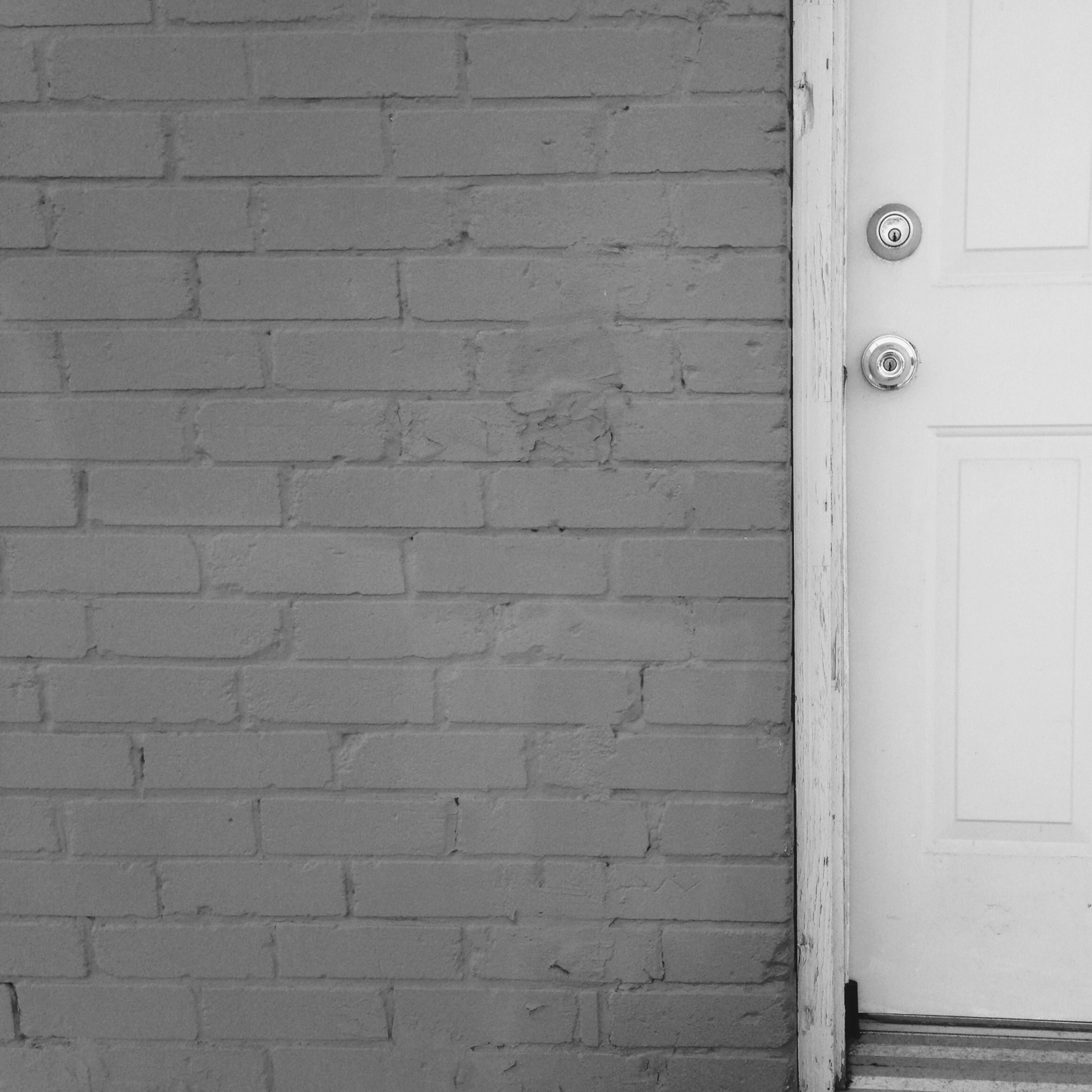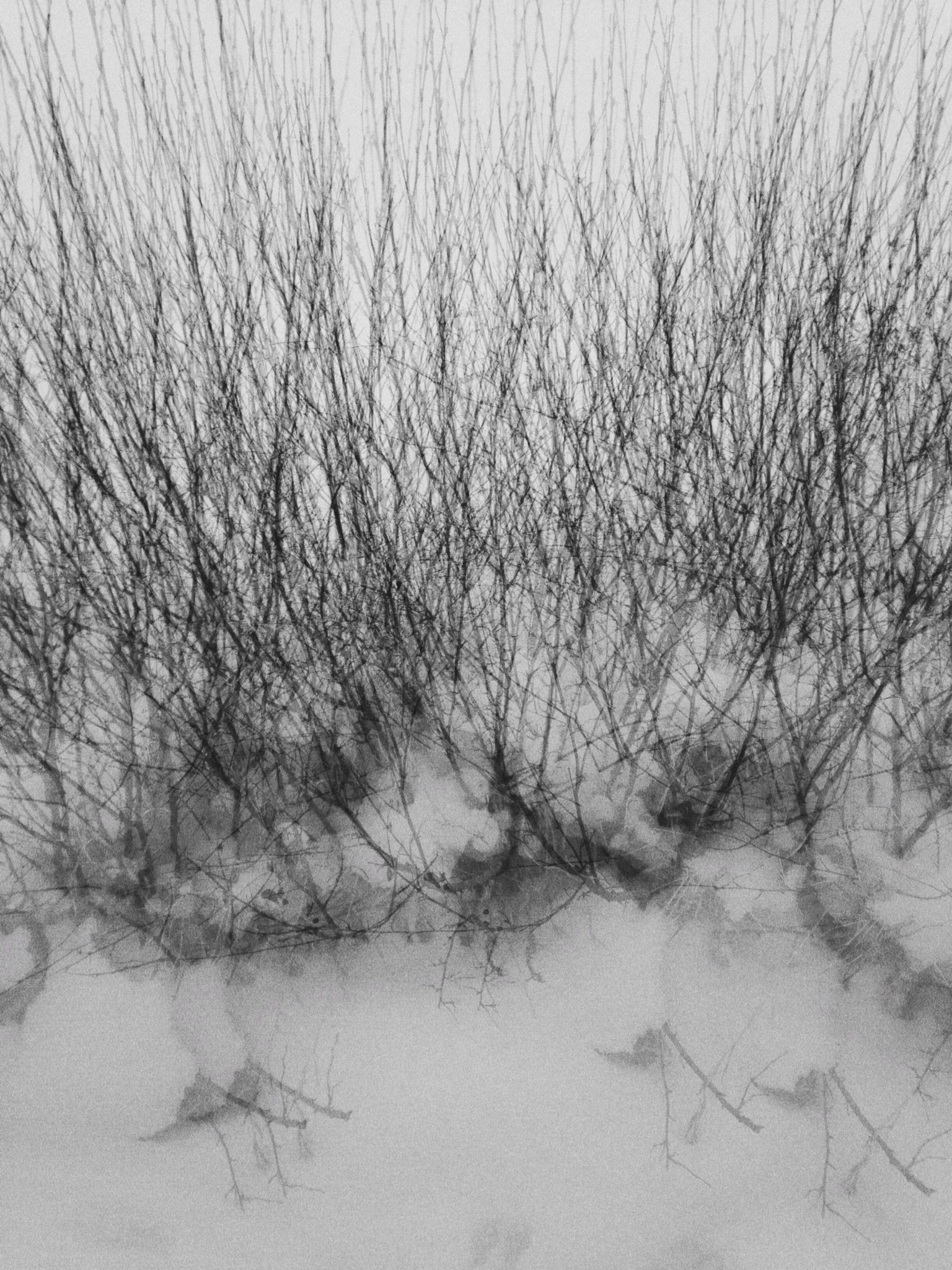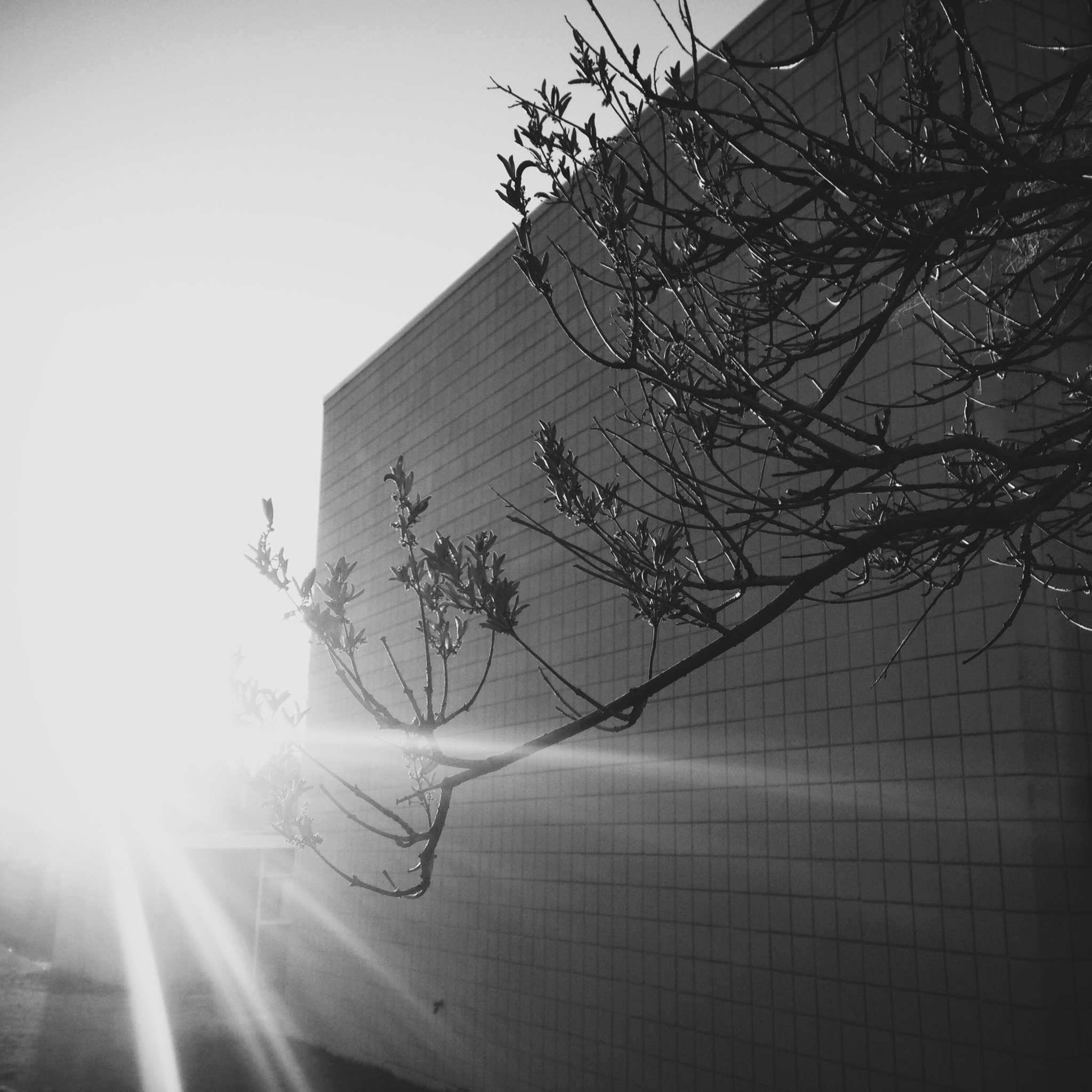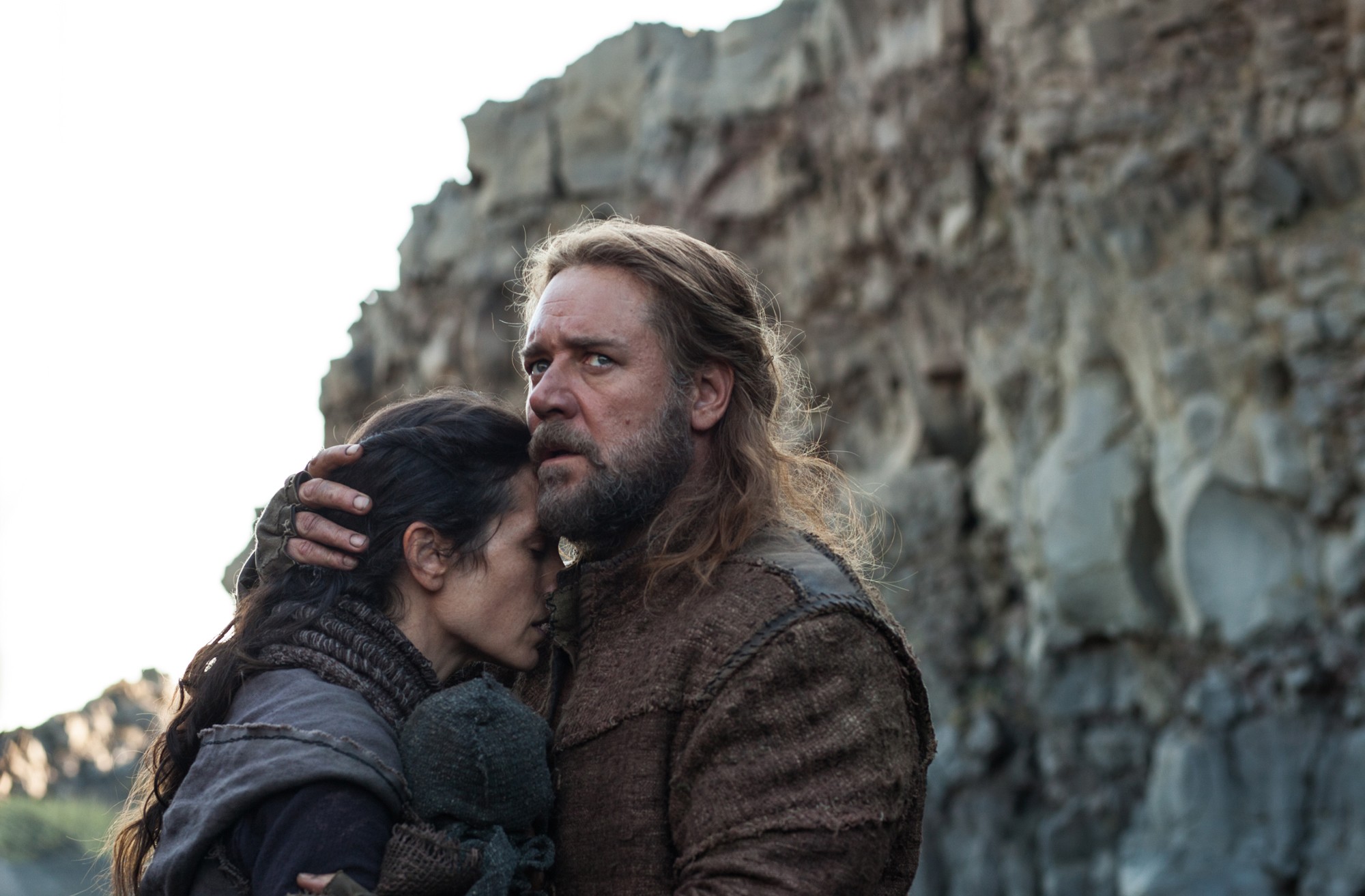Travels 2015 is a series of updates I originally posted on Facebook while on vacation. What started as a quick update and a couple photos transformed into a series of mini-essays that I would have posted on this website had it been up and running at the time. This one was written on August 4th, 2015.
Hornby is home to a thriving and varied community of artists, and one manifestation of this influence is the annual Hornby Island Festival. Despite the small size of the island and the family feel to the festival, the event has become a bit of a legend in the world, classical, and folk music scenes, having featured world-renowned artists. I'll never forget Colin Carr's two night performance of the complete Bach's cello suites several years ago.
This year all of the performances I attended were at The Farm, which is first seen at the bottom of winding road that begins high above on a steep escarpment. One then follow’s the road down, onto a gravel driveway decked with colourful flags. The farm's fields roll towards the ocean and are scattered with ancient oak, arbutus, and chestnut trees. The evening sun illuminates two giant maple trees, reminiscent of Bilbo's "party tree", under which the stage and seating are set up and from which giant spotlights are hung.
Only my parents and I attended the first event, a symphony orchestra. My grandfather bought the tickets but made the uncharacteristic decision not to come. "I refuse to attend outdoor symphony events. The symphony belongs indoors" he declared. That was a mistake, for he would have become best friends with the little spirited Irish conductor, who has taught and performed around the world and received a medal of honour from the Queen. (Both he and my grandpapa remind me of Bilbo Baggins in their age, stature, charm, and significance.)
After several satisfactory Mozart and Hyden pieces, the evening proceeded with a performance of Vaughan Williams 'The Lark Ascending’. It is a performance I will never forget. I was introduced to the piece through a David Crowder album, but until now have never heard it live. The sun was setting, the moon was rising, and the soloist, a lovely 20 year old fiddle protégé named Ceilidh Briscoe, stepped onto the stage.
To try describe the music that followed would be futile. Instead I'll just quote the poem that accompanies the music. Imagine music that supersedes these words in grace, poignancy, and tenderness.
He rises and begins to round,
He drops the silver chain of sound,
Of many links without a break,
In chirrup, whistle, slur and shake.
For singing till his heaven fills,
‘Tis love of earth that he instils,
And ever winging up and up,
Our valley is his golden cup
And he the wine which overflows
to lift us with him as he goes.
Till lost on his aerial rings
In light, and then the fancy sings.
My dad is not one given to displays of emotion, but the moment she finished playing he leapt to his feat, applauding, something I've never seen him do before. Both Mum and I joined him on our feet immediately after, followed by the rest of the audience. Dad told Ceilidh later that it had been a long, long time since he's heard that piece performed with such justice. (The composer, it turns out, was good friends with my dad's grandmother and composed a piece for her family to perform in Trinity College, Cambridge.)
The black and white photos are from last night's family fiddle dance. It featured one of the best fiddlers in the world, Pierre Schryer, joined by a first class Irish uilleann pipe player. It was such a treat watching the two of them perform together, effortlessly passing their ideas back and forth with joy and humour. Then the chairs were cleared away, the evening light was replaced with the light of the lamps that hung in the trees, and all the families, couples, strangers, and friends joined together for several hours of called English dances. Such rare fun. It brought everyone together. Imagine your dancing partner being, in turn, your sister, your mum, your auntie (who's teaching you the moves as you dance), a lady who could well be your grandmother (whom my mum dragged in from off the sidelines to join our family), and finally a little twelve year old girl who's shyness blossomed into a big smile as I give her a surprise twirl as we dance our waltz under the trees.


